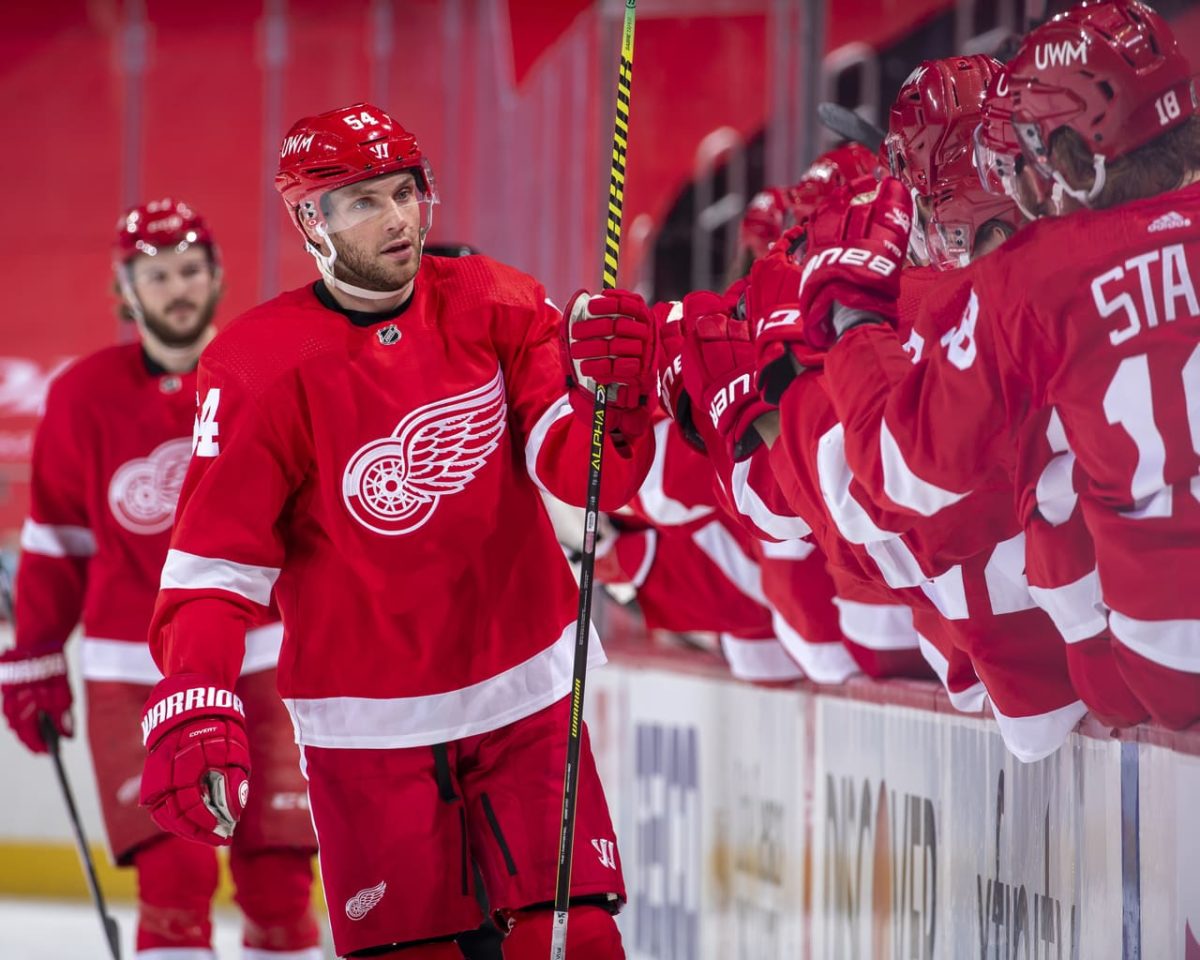You have to look awfully close to find a weakness in the Vegas Golden Knights’ roster right now. But that’s the nature of general manager Kelly McCrimmon’s job, particularly as the NHL Trade Deadline looms.
McCrimmon knows that while Vegas’ 16-6-1 record looks pretty good, a middling 4-4-1 mark against fellow West Division contenders, the Colorado Avalanche, St. Louis Blues and Minnesota Wild, suggests a less dominant division lead. Likewise, ranking first in the West and 11th in the league in goals per game (3.17) suggests their offense needs no tweaking. However, of the 73 goals the team has scored to date, 55 have come off the sticks of seven forwards (Max Pacioretty, Alex Tuch, Jonathan Marchessault, Chandler Stephenson, Mark Stone, William Karlsson and Reilly Smith).
Here at THW, we have already offered reasons why McCrimmon and the Golden Knights might do well to be aggressive on or before April 12. Here’s a look at how they can shore up their forward corps to be Cup-ready.
Bottom-Six Scoring
Vegas has already tried to address their scoring imbalance by shaking up the lines with little success. With Tuch now firmly entrenched in the top six, a bottom-six of Cody Glass, Nicolas Roy, Keegan Kolesar, William Carrier, Tomas Nosek, and Ryan Reaves have combined for just five goals. Those depth struggles were apparent in a pair of losses to the Minnesota Wild this week as the Golden Knights failed to create any offense with captain Mark Stone sidelined, save for an unlikely hat trick from Dylan Coghlan.
The good news for McCrimmon is that there are options on the table. First, an internal solution would be preferable. Henderson Silver Knights captain Patrick Brown has three goals in eight games this season, and he has scored twice in three games with the big club in Vegas (one regular season, one postseason). There’s also Dylan Sikura and Gage Quinney, who have a combined 12 goals for the Silver Knights. While there’s no room at center to recall Peyton Krebs, perhaps the club could roll the dice and put him on the wing alongside Glass.
Addressing Depth Issues By Trade
A trade would force Vegas to part with assets and offers its own complications (more on that in a minute), but it might be a more surefire solution than banking on a player who isn’t an NHL regular. Looking at the TSN Trade Bait board, there are a couple of names that stand out.
Bobby Ryan has six goals and 12 points for the lowly Detroit Red Wings, all while making just $1 million this season. The 33-year-old plays a heavy enough game to not look out of place on a depth line and could contribute to a surprisingly stagnant Golden Knights power play, which ranks in the bottom third of the league. As recently as 2018-19 with the Ottawa Senators, Ryan had seven goals with the man advantage.

There are other options that could offer a nice on-ice boost, albeit not with the same affordable price tag. Mikael Granlund has been a trade rumor regular this season. He’s a pending free agent with five goals for the disappointing Nashville Predators and can play anywhere in the lineup, but his $3.75 million cap hit won’t be easy to absorb. The same goes for Tanner Pearson of the Vancouver Canucks, who shares an identical goal total, free-agent status and cap hit, with the added inconvenience of requiring a quarantine period on landing in the US. Still, as the Golden Knights gear up for a run at the Cup, the need for reinforcements may make such additions necessary.
It’s worth noting that none of these three veterans, all of whom are on expiring contracts, would cost a top prospect in a trade, such as Krebs, Ivan Morozov or Brendan Brisson. Because of Vegas’ deep prospect pool, they could easily produce a package of secondary prospects to make a deal work without significantly impacting their long-term outlook.
Tight Cap Situation
The main reason why a deadline deal of any significance is unlikely comes down to the Golden Knights’ perpetually tight cap situation. With Robin Lehner and Brayden McNabb on long-term injury reserve (LTIR), the team is well over the $81.5 million cap and will remain awfully close to it when the two return. Any hope of a move would require a dollar-in, dollar-out deal in which the club cuts as much salary from their roster as they take in.
A quick glimpse at the Golden Knights’ salary chart indicates which players might be cap casualty candidates. Vegas fans wouldn’t be thrilled to see favorite Ryan Reaves take his grit and physicality elsewhere, but $1.75 million is a lot to be paying a marginal, 10-minute-a-night 34-year-old in today’s NHL. Likewise, Nick Holden is the odd man out on the blue line with the emergence of Zach Whitecloud and Nic Hague, so the team wouldn’t lose much by shedding his $1.7 million deal. The hold-up in both cases is the extra year on both of their deals.
In their short history, the Golden Knights haven’t been shy about getting in on the trade deadline fun. This season projects to be considerably quieter for a number of reasons, but that’s not to say that an upgrade in the next month isn’t feasible. We’ll learn more before April 12, especially with six more games against the Minnesota Wild and Blues between now and then. It’s likely, however, that whatever the team looks like, there shopauld be room for improvement.
I may be a Leafs fan at heart (I’ve witnessed their highs and lows first-hand as a Scotiabank Arena employee), but I’m also a veteran freelance sportswriter who loves a good story. And there’s been no better story in hockey over the past few years than the Vegas Golden Knights. I’m excited to be covering the NHL again on the Golden Knights’ beat.
